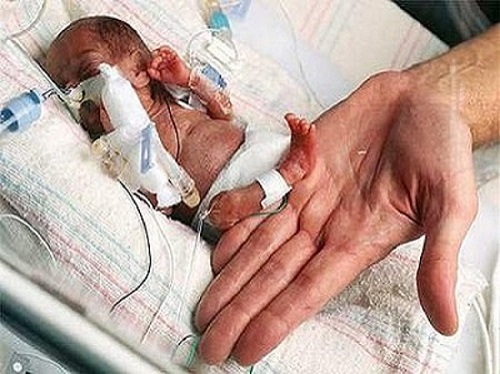Premature Birth

Premature birth
- A birth is considered premature if it has occurred at least 3 weeks before the baby’s estimated due date, generally before the start of the 37th week of pregnancy. [1]
- The more premature a baby is, the greater the risk of complications. Babies born premature have an increased risk of death within the first year of their life, particularly within the first 28 days. [2]
- Premature birth is the leading cause of death in children younger than 5 years, worldwide. [3]
The European Foundation for the care of new babies reports that in Europe, the prevalence rate of premature birth ranges from 5.5 to 11.4% - an average of 7.1% of all live births. They also found that Prevalence of preterm birth varies across the 14 countries covered by the report from 5.5 % in Ireland to 11.4% in Austria representing an average 7.1% for the region. It also shows that the number of preterm births is rising. For example, in Portugal prematurity increased by 32% over the period 2004 to 2008 (from 6.8% in 2004 to 9.0% in 2008); Austria saw a similar rise from 8.1% in 1991 to 11.1% in 2008 and Spain registered an increase in the number of preterm infants from 17,000 in 1997 to 40,281 cases in 2007. In the UK the number of extremely preterm births rose by 30% between 1995 and 2006. [4]
In 2021, premature birth affected 1 in 10 babies born in the United States, an increase of 4% compared to the previous year. [5] Worldwide, approximately 15 million babies are born prematurely each year, averaging out at more than 1 in 10 babies. [6].
Here in Ireland, the figure stands at around 4,500 a year (about 1 in every 16 babies), meaning a baby is born prematurely every 116 minutes. [7]

Definitions
- Premature: born before 37 weeks
- Moderately premature: born between 35 and 37 weeks
- Very premature: born between 29 and 34 weeks
- Extremely premature: born between 24 and 28 weeks
- Low birthweight: baby weighs less than 2,500 g (5.5 lbs)
- Very low birthweight: baby weighs less than 1,500 g (3.0 lbs)
- Extremely low birthweight: baby weighs less than 1,000 g (2.2 lbs)
- Neonatal deaths = within 28 days of birth
- Prenatal deaths = stillbirths and deaths occurring within the 1st week of life [8]
Survival Rates
- Less than 22 weeks is close to zero chance of survival
- 22 weeks is around 10%
- 24 weeks is around 60%
- 27 weeks is around 89%
- 31 weeks is around 95%
- 34 weeks is equivalent to a baby born at full term. [9]
Fetal Viability
The threshold of fetal viability has progressively lowered over time. In the 1970s, the limit was set at 28+0 weeks’ gestation. In the 1980s, the survival of infants less than 28+0 weeks’ gestation started to exceed 50%. Over the subsequent 30 years it decreased to 24+0 weeks’ gestation. More recently, a further reduction in the threshold of viability to 23+0 weeks’ gestation has been proposed by many perinatal centres and working party groups. [10]
World’s Youngest Premature Babies
James Elgin Gill was born in Ottawa, Ontario, on May 20, 1987, around 128 days early or 21 weeks gestation. He set a record when he was born as the world's most premature baby. James was born so early that he was expected to die at birth or—if he survived—to have multiple and severe handicaps. James beat all of the odds, growing to be a healthy adult.
Miami-born Amillia Taylor was born at just under 22 weeks gestation in October 2006. Because Amillia was conceived by in vitro fertilisation (IVF), her gestational age can actually be pinpointed exactly. Although she needed oxygen at hospital discharge, she is otherwise healthy today. [11]
Links
- Mayo Clinic - Premature Birth
- NCBI - Infants Born Premature
- Global, regional, and national estimates of levels of preterm birth in 2014: a systematic review and modelling analysis
- Preterm birth time trends in Europe: a study of 19 countries
- CDC - Preterm Birth
- WHO - Preterm Birth Fact Sheet
- Infant Centre - What to expect in the NICU
- Premie Survival - Premature Birth Statistics
- Tommy's - Premature Birth Statistics
- HSE - Perinatal Management of Extreme Preterm Birth at the Threshold of Viability
- World's Smallest Premies